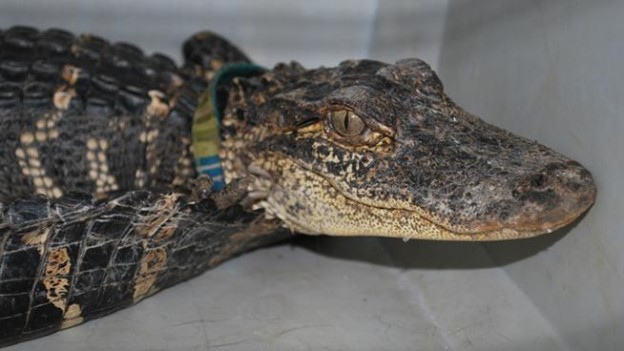New HUD Guidelines for Service and Support Animals
Wally the alligator went national for his abilities as an emotional support animal. But new federal rules could mean the doors to rental housing get slammed shut on reptiles like him.
Wally improved a Pennsylvania man’s depression, despite the alligator teeth, news reports said. The gator became famous, just like the Brooklyn peacock denied a seat on a plane. But the U.S. Department of Housing and Urban Development (HUD) is changing the rules when it comes to animals and housing.
Kangaroos, miniature horses, monkeys and all your owners, need to take note. The Fair Housing Act that opened rental doors to emotional support animals has changed.
Originally, the FHA was designed to give disabled people the same housing opportunities as everyone else. An assistance animal, under the law, is known as reasonable accommodation for a disability.
The rules prohibit landlords from charging pet fees if tenants need an animal to help them with their disability. The rules also stop landlords from saying “no pets’, if the tenant has a disability and a documented need.
But critics say the law has problems. It produced a flood of complaints to the federal government. It also became an easy way for tenants to claim a disability and skip pet fees or get pet prohibitions. And the law also allowed in a host of exotic animals.
The crackdown is winning applause — even from people in the industry who will have to meet higher standards to operate.
“Twenty-two dollar documents, deceitful business practices, unlicensed and unethical therapists, pets becoming service animals by clicking ‘submit’ — I see it every day with consumers shopping for a legitimate emotional support animal letter,” said Chaz Stevens, CEO and founder of ESAD International.
To prove his point, Stevens paid $18 to register his “Emotional Support Big Foot,” with one company. It’s a total fake. And such fakes could undermine a vital service for those who need a four-legged or feathered friend by their side.
“It’s about time Uncle Sam sent in the cavalry,” Stevens added.
The new guidelines in FHEO-2020-01 will tighten what animals qualify as assistance animals. It also is stricter about which medical professionals can determine who needs an assistance animal. Specifically, the new rules will:
- Largely limit emotional support animal species to common household pets, such as dogs, cats, gerbils, small birds or fish.
- Add new standards for who documents the need for an assistance animal. The new rules say that a medical provider issuing the letter must have “personal knowledge” of the patient’s disability. The requirement applies if the disability can’t easily be seen.
Stevens, of ESAD International, is not sure most of his industry is complying with the new rules. He said he found one operator with 65,000 clients whose owners thought the new rules didn’t apply.
“We encourage our readers to proceed cautiously when shopping online for an ESA letter,” Stevens said. “The U.S. government cracked down and it appears few have risen to the challenge.”
Author: Terra Wilder















